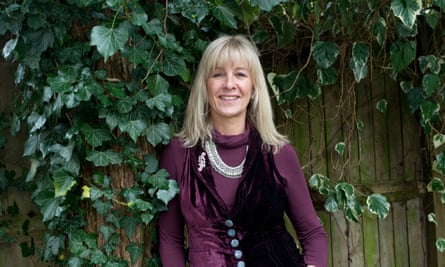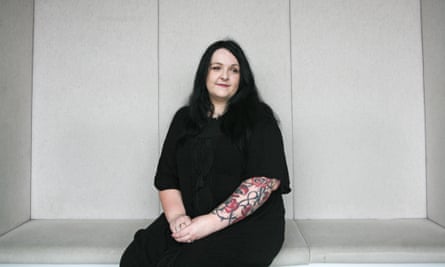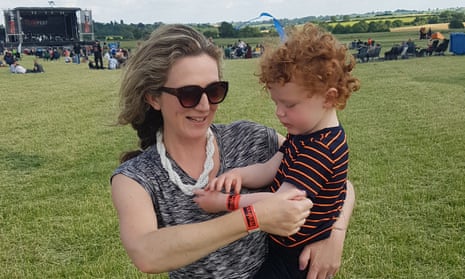Lizzie Harrop is hoping she might receive a box of chocolates or a handmade card on Sunday, but what she is most looking forward to is spending lots of time outdoors in the Leicestershire countryside with her three-year-old son, Barnaby. Today is another Mother’s Day she can mark as a mum – something she once thought would not happen. At 39, she became pregnant with Barnaby unexpectedly after failing to conceive for several years.
“We had given up trying because the strain was taking its toll on us. I stopped taking drugs that made me ovulate and was trying to accept that it might not happen. And then I got pregnant. I’m still pinching myself.”
A hundred miles north in Wakefield, West Yorkshire, Lisa Bucknall, also 43, is watching comedies on Netflix, eating chocolate and locking herself away from the world today. “I dread Mother’s Day. I always loved children and thought one day I’d be a mum. But I didn’t meet anyone I wanted to settle down with until I was 35.”
She and her new partner started trying for a baby right away. “We thought it would be really easy. It came as a shock that it wasn’t.” Three IVF attempts, with both her own and a donor’s eggs, ended in failure, miscarriage and separation. “It feels like something has been snatched away from me.”
The different experiences of Harrop and Bucknall will strike a chord for many women in their late 30s and early 40s on Sunday. Many – especially those who are celebrating Mother’s Day with a newborn for the first time – are mothers because they had options their own mothers didn’t have. But at the same time the rate of childlessness among British women over 45 has rocketed to a level not seen since the aftermath of the first world war.
About one in five (18%) of British women aged 45 are childless, the Office for National Statistics revealed last year, and Britain has one of the world’s highest rates of childlessness among women aged 40-44.
According to a global survey by the Organisation for Economic Co-operation and Development (OECD), UK women aged 15-39 said they would personally like to have 2.3 children on average. Asked what they thought the ideal family size was generally, just 0.67% of UK women surveyed said zero children.
Fewer women today start a family in their 20s – the average age for a British woman to give birth for the first time now is 30, compared with 26 in 1971, and the ONS reports 54% of women are over 30 when they have a baby. That figure is even higher for men becoming fathers: 68%.

A whole host of financial reasons lie behind this shift. As well as being the most debt-laden generation and the first expected to pay significant fees for university, 25-to-34-year-olds are far less likely to own their own home than in the past, with almost half living in rented accommodation, compared with almost a third only 20 years ago. While the average age of a first-time buyer in the early 1970s was 27, today it is 33. This often impossible battle to secure enough money to buy a home of their own means a quarter of millennials aged 20 to 34 still live with their parents.
Changes in women’s working lives have also had an impact on men’s attitudes to family life, argues social gerontologist Dr Robin Hadley. “Some men today feel more ambivalence about when to settle down.” Often, he says, this is not because men don’t want children, but because they want to be able to play more of a nurturing role in their children’s lives than their own fathers did. In 1974, men were twice as likely to have a child in their 20s as their modern counterparts, who also get married almost 10 years later.
Women who have children when they are younger often struggle to cope financially. Childcare costs in England have risen up to seven times faster than wages since 2008 and it now costs £6,300 on average for a part-time nursery place for a child under two, with a quarter of mothers under 25 reporting they had left a job because they could not afford care.
“Often, women over 40 are childless because they have made sensible, honourable decisions,” says Jody Day, 53, founder of the Gateway Women support group and author of Living the Life Unexpected, a self-help book for childless women. “We used birth control so we didn’t get pregnant by accident, we held out for the right partner and we waited until we had a secure home environment to bring up our children in. We thought we had plenty of time in our 30s because of IVF. But then it became a race against the clock – and time ran out.”
This rings true for Bucknall, who says she took it for granted she would be a mother one day, but never had unprotected sex before the age of 35. “I left school thinking you could get pregnant at the drop of a hat. Taking precautions was ingrained in me.”
Similarly, Jessica Hepburn, 47, organiser of Fertility Fest (the world’s first fertility arts festival), started trying for a baby at 34. In her book The Pursuit of Motherhood, she chronicles her 11 private rounds of unsuccessful IVF (at a cost of more than £70,000) and multiple miscarriages. She was eventually diagnosed with “unexplained infertility”.
In her opinion, the disconnection between the number of children that women under 40 want to have and the number of children that women over 40 actually end up having is due to misunderstandings about fertility. She believes this is partly caused by messages about how easy it is to get pregnant that were drummed into her generation at school, along with widespread myths about IVF.
Earlier this month, she helped the newly established Fertility Education Initiative lobby the government to start educating children about fertility as part of the national curriculum: “We’re focusing on 16-to-18-year-olds, but age-appropriate conversations with children about fertility should be happening from year dot. The viability of a woman’s eggs as she ages and the science of IVF is not well understood by the young. We should be celebrating what IVF can do and how it can create modern families for women with fertility issues, but also acknowledging its limits.”
Infertility is not, of course, the only cause of involuntary childlessness. It is estimated that the vast majority (80%) of childless older women are childless due to circumstances, rather than choice or infertility.
The experience of Lauren de Vere, 54, who wanted to start trying for a baby when she was 32, is common. “My partner at the time, who was 10 years older and had two children already, kept saying: not yet, not yet. Finally, when I was 35, he told me maybe he didn’t want more kids after all.”

They split up and she did not meet anyone else she wanted to raise a child with until she was 42. “We decided to try to adopt. During the process, I explained I had a difficult relationship with my mother, who has mental health issues. Nine months later, we were turned down and, sadly, that was the reason they gave.”
Even for women who are happy they are childfree, Mothering Sunday can be frustrating because of the inference that achieving the status of mother deserves a special day in the calendar each year.
“Possibly the worst thing you can do on Mother’s Day is to presume that every woman is a mother, or wants to be a mother, or will be a mother one day,” says Day. “Another painful aspect of the day for many of us is the idea that we are not kind or nurturing because we are childless. This strikes at the very core of feminine identity. Today, childless women can feel both intensely visible – because we don’t ‘fit’ – and invisible, because where is the space for our grief?”
This an experience recognised by Bucknall. “I’m the only one in my circle of friends who doesn’t have kids. You can feel like something’s wrong with you, like you’re not a complete woman.”
From a biological perspective, a woman’s fertility typically drops quite dramatically after her 40th birthday. Despite this, the attractions of older motherhood mean more women over the age of 35 now give birth each year than women under 25. “Bringing up a young child in your early 40s is absolutely exhaustingly brilliant,” says Harrop. “You may have less energy than younger mums, but you’re economically more sound and you have more maturity. I can afford wraparound childcare, I’ve seen a lot of the world and I have many things to share with my son. I find spending time with him so rewarding.”
Professor Elizabeth Gregory, author of Ready: Why Women Are Embracing the New Later Motherhood, says women who start a family when they are over 35 are likely to enjoy many benefits younger mothers don’t. “They are more likely to have seen something of the world and invested in their education and are less likely to resent staying in at night with a small child. They are more established in their careers, which means they are more likely to earn enough to carry on in their profession after birth.”
Women over 35 are also more likely to have found mature long-term partners, who see them as an equal and are equally ready to settle down, she says. “All these economic and emotional benefits for mothers are also felt by their children.”

She thinks more women are making more informed decisions about when they want children and, as a result, attitudes towards women who don’t want children at all have improved. “There’s greater understanding of the challenges mothers often face at work and the costs of having children, both in terms of money and time. Fewer people are likely to tell you that you should have a child nowadays.”
Julia Bernard-Thompson, 40, a business consultant from Ashford, Kent, is one of the many women for whom childlessness has been an active choice.
“It first hit me that I didn’t want kids when I was 13. Later, I would always tell potential partners as soon as the topic came up, even if it was the first date,” she says. “I met my husband when I was 29, 11 years ago. When I told him how I felt about having children, he audibly exhaled and said he felt the same way, and it was so rare for him to meet a woman who didn’t want kids. That was the moment we knew we were going to be together.” She says the couple enjoy their freedom and independence, and spending long, lazy days together. They also like being able to spend their money on themselves.
“Personally, I don’t want to suppress what I want to do for a child. When a woman says these things, other people say she is selfish – and maybe it is selfish. But I’m a very nurturing person. I love deeply, I’m the best auntie and I’ll drop everything for my friends. I don’t feel I need to be a mother to be happy or satisfied and I don’t feel like I’m missing out. For me, there isn’t any downside to being childfree.”
Harrop feels equally happy with her lot. “I feel incredibly lucky. I know the 5am starts aren’t going to last forever and I think my 40s are going to be brilliant. The people in my family have a history of longevity and I’m hoping that one day I’ll be an incredibly fit and attractive grandmother, like my own mum.”

Comments (…)
Sign in or create your Guardian account to join the discussion